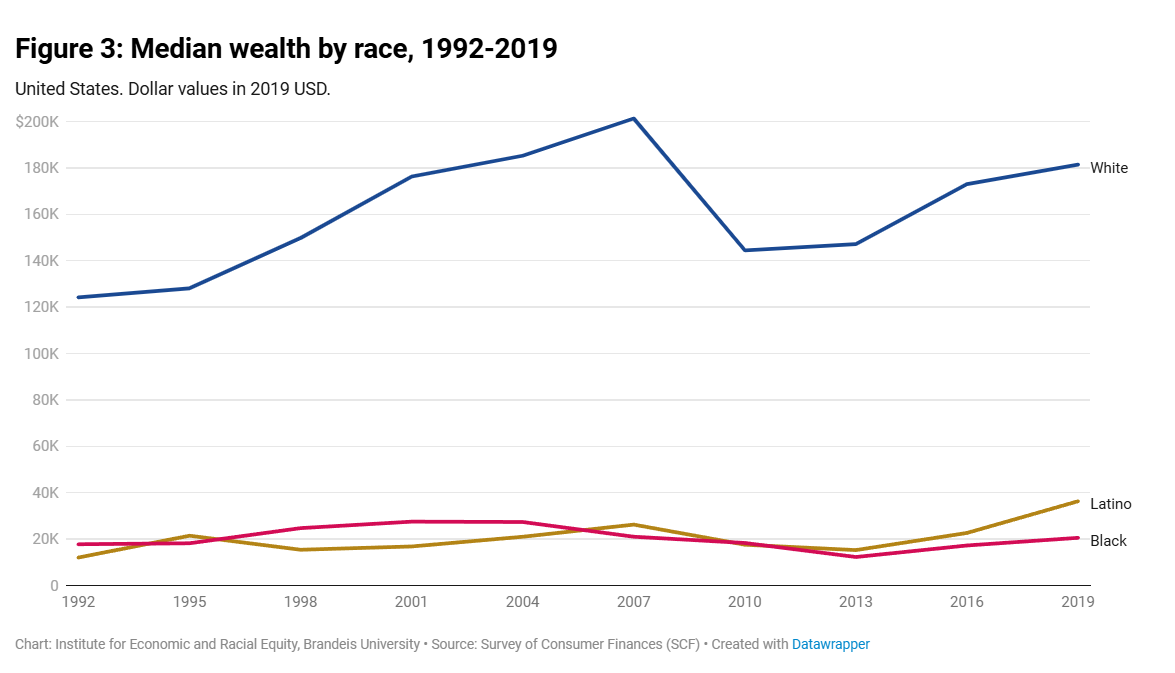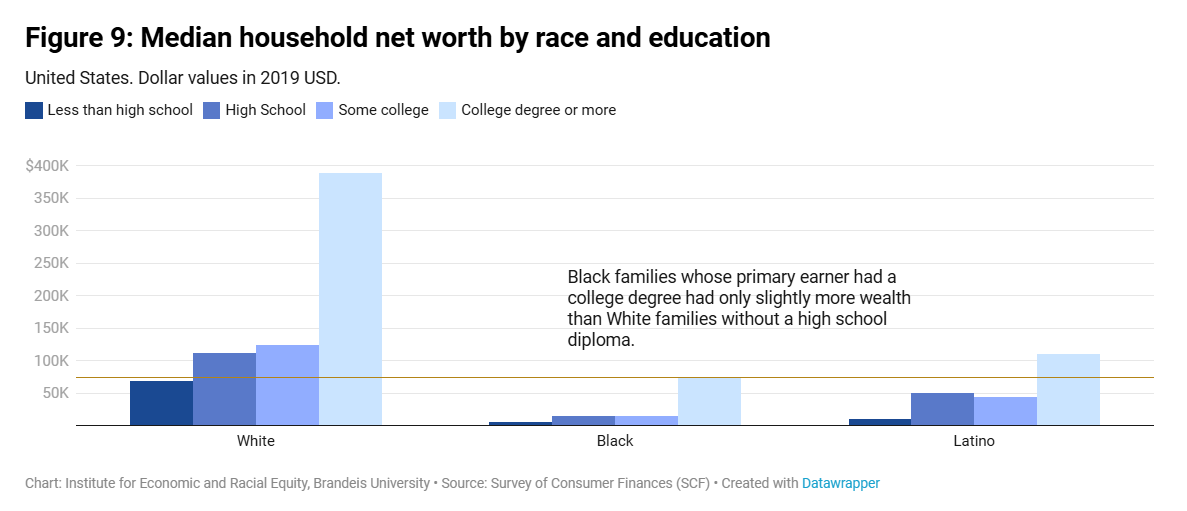In redlined neighborhoods like Roxbury and Mattapan, banks and insurers routinely denied mortgages to Black applicants. Homeownership is the primary vehicle for building intergenerational wealth in the U.S., and without it, families were locked out of equity.
In 1974, court-ordered busing sought to integrate Boston Public Schools but met fierce resistance and “white flight.” Nearly 30,000 students left the system in one year. (Prism Reports, 2023)
Redlined areas suffered underfunded public services roads, transit, parks, and emergency response because local revenue followed property values. Today, residents in formerly redlined neighborhoods still face longer emergency response times and fewer infrastructure investments.


Source: Boston Indicators Wealth & Equity Chartbook
“I was born poor, I was at a huge disadvantage being born Black, and I was female, but I had both teachers and a community that believed in me. So I did succeed, but I don’t feel that that’s the case in Boston.”
— Peggy Kemp